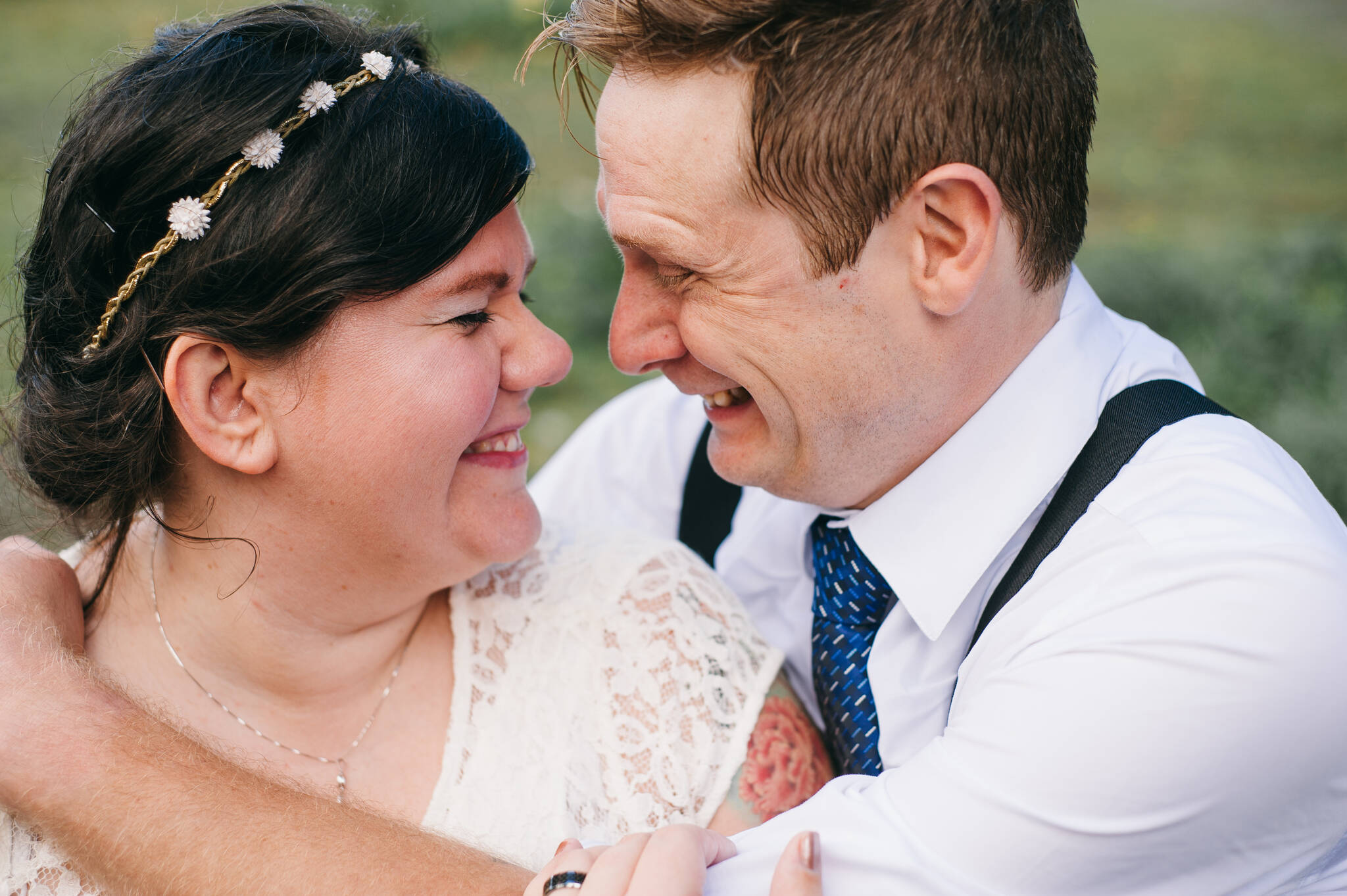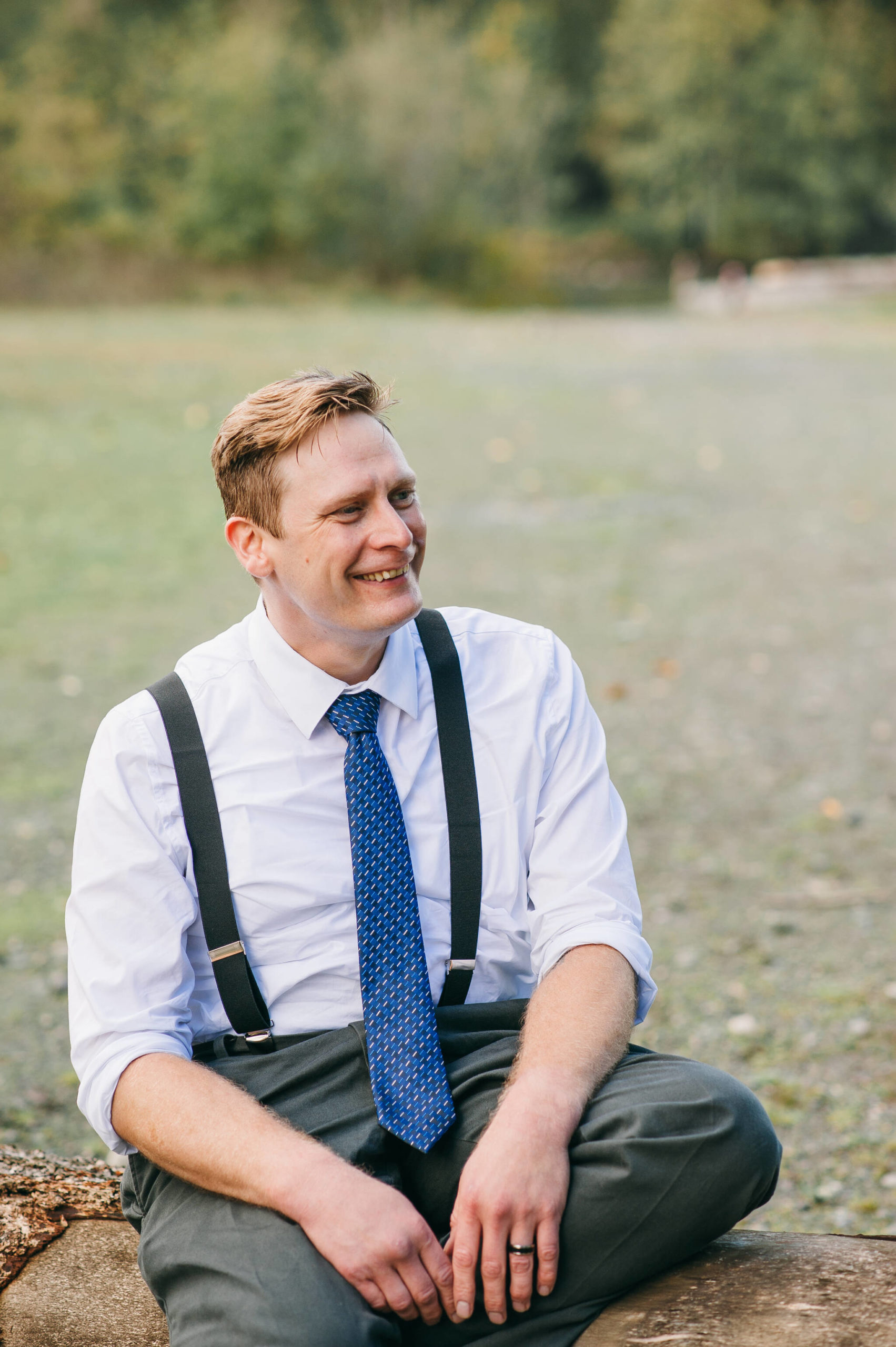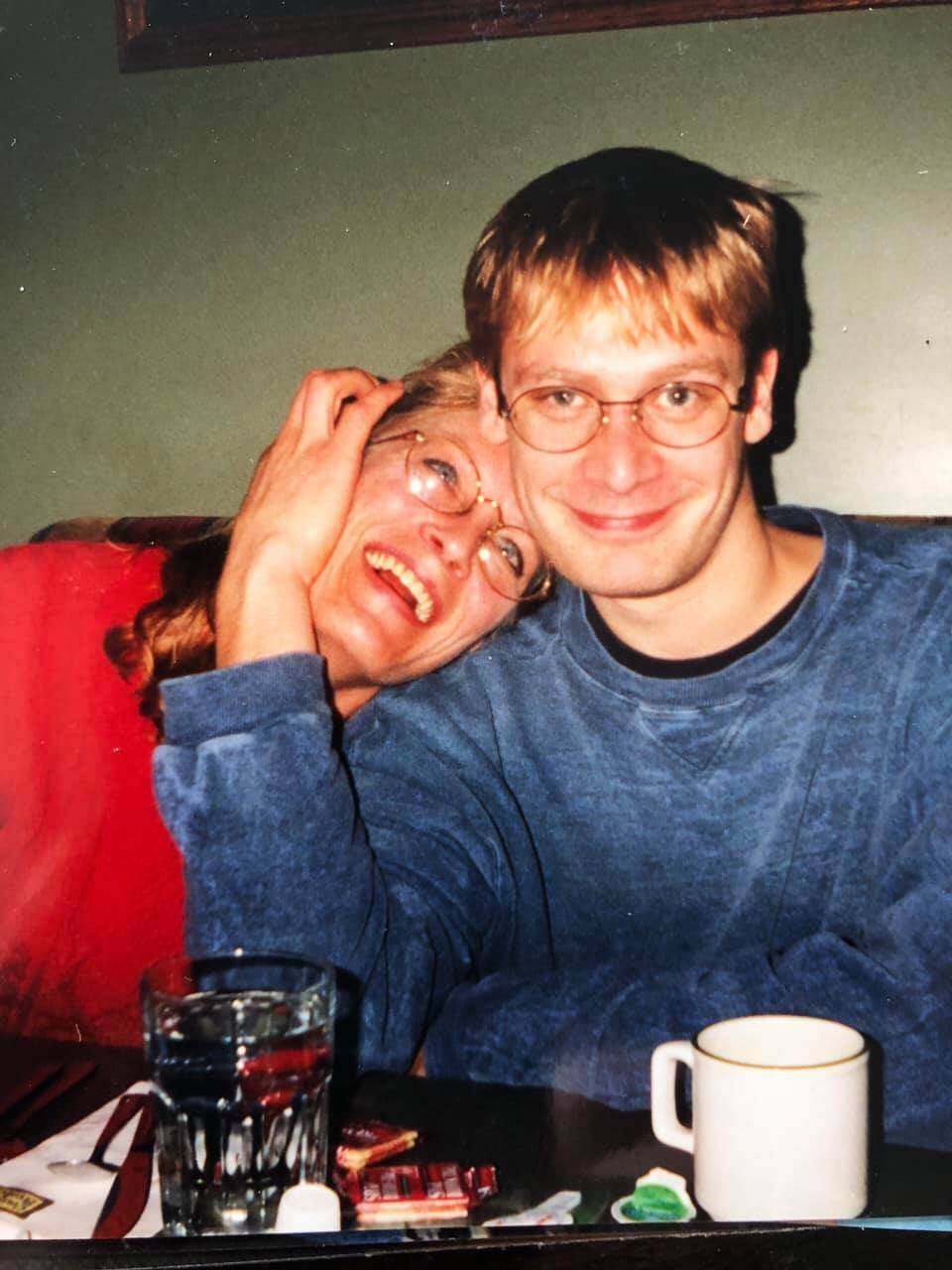When Chilliwack’s Kevin Sawatzky died of an overdose in the summer of 2020, Elizabeth Sawatzky was angry. Her husband of six years made one stupid and impulsive decision, and because of that she lost the love of her life. One word ran through her head endlessly.
Why?
Why would he do that? Why would he throw away his life so recklessly, and leave her alone to raise their teenaged daughter without a father?
Why?
Anger can make a person cynical and bitter and shut them off from the world. Elizabeth may have spiraled into darkness if not for the push of a button. She was at the funeral home the day Kevin was due to be cremated. Elizabeth was still very, very angry and maybe the person running the cremator recognized that because he asked her if she wanted to start the cremator.
Weird question, right? But yes. Yes she did. She was so mad at Kevin and so she stabbed that button.
“When you’re so mad at somebody and you just want to punch them in the face, but you can’t because they’re dead, what do you do?” Elizabeth asked. “You light them on fire.”
She wrote a long letter to Kevin. She took his favourite book and put concert tickets and cards and other mementos within its pages. Those two items were cremated with him, and as she watched the flames through a little window a strange thing happened. She could feel the anger leaving her body. Elizabeth remembered the love and laughs and life they shared and she found peace with three words.
I forgive you.
———-
RELATED: Another grim record for toxic drug overdose deaths in B.C. so far in 2022
Two-and-a-half years later, it’s not easy for Elizabeth to talk about. There’s a reason we don’t often hear from the families of overdose victims, summed up in one word. Stigma. There’s stigma around drug users, who are considered weak and selfish for doing what they do. If they die, horrible as it sounds, people say, ‘Well, they brought it on themself.’
But there’s stigma on their family too. What did you do to cause this? What didn’t you do that might have prevented it? Why weren’t you a better brother/sister/mother/father/spouse? Those questions are magnified when someone ‘normal’ dies. When it’s someone from Vancouver’s downtown eastside, it’s assumed that person came from a trauma-filled upbringing and this was the inevitable result. When it’s a lawyer or banker or teacher, there must be a reason for what they did.
When Elizabeth and Kevin’s mother, Charlene Vermeer, were approached by Kwantlen Polytechnic University to tell their story in a podcast called ‘Unsilencing Stories,’ they didn’t hesitate. Elizabeth viewed the podcast as a “weird academic thing” that not a lot of people were going to listen to.
But when they were contacted by your friendly neighborhood Chilliwack Progress writer, that was different, because of the stigma.
“This is harder because this is my home community,” Elizabeth admitted. “I am really conflicted because part of me feels I need to put it out there and use my voice, but another part of me feels like putting this out there to my community is such a personal thing. But a friend of mine said to me, ‘What if it saves a life?’
“If one mother doesn’t have to bury their child, it will be worth it,” Charlene said.
———-
RELATED: Chilliwack sees year-to-year drop in overdose/poisoning calls for paramedics
Kevin was 45 years old the day he died on June 29, 2020. He and a colleague from work decided to get high together.
Kevin had a history with drugs. Years ago, when he lived in Vancouver, he’d been addicted to heroin. He worked very hard to get off it, and Elizabeth made it a condition of their being together that if he ever started using again, she’d be gone. As far as she knew, he’d been clean for a long time.
“I don’t know if it was a complete one-off. Was there stuff I should have been looking for? Was I not paying attention?” she still wonders. “At the same time, I couldn’t live my relationship with him wondering if he was using substances again. If you’re trusting your spouse, you shouldn’t have to be checking all the time, even though in hindsight, maybe I should have been. Should I have been secretly drug testing him? I don’t know.
“It’s all whys and what-ifs.”
During his darkest days of addiction, Kevin survived several near-death overdoses, and Elizabeth believes he felt a sense of invincibility. It was a Monday. She figured he was bored and he thought he’d be OK if he was safe about it. He was doing drugs with someone else, with a Naloxone kit nearby, and he assumed the drugs were from a safe supply.
That was the fatal mistake.
According to a coroner’s report, the drugs in his body were a toxic mix of crystal meth and fentanyl. The co-worker lost consciousness for several hours. By the time she came out of it, he was dead.
According to the B.C. Coroner’s Service, Kevin is now part of a sad statistic. He was one of 1,774 overdose deaths across B.C. in 2020, followed by 2,306 in 2021 and 2,272 in 2022. An average of 6.2 people per day are dying.
———-
RELATED: Abbotsford trustee speaks out about son’s overdose death to help others
“It was like it is in the movies, where the police come to your house and tell you what happened and you start screaming hysterically,” Elizabeth says. “It was exactly like that.”
She remembers that night vividly. The knock on the door and the police officers on the doorstep. She thought Kevin had been in a car accident. When they said overdose, she felt shocked. It was so unexpected she couldn’t even process what was happening.
“I was sad and angry later, but at the time, I was just numb,” she recalled.
Charlene called it the worst day of her life and admits she wanted to hit Elizabeth when she arrived with the devastating news that Kevin was dead. Two years later she still struggles. Charlene didn’t get to push the button on the cremator and have that moment of closure. There are times when she still feels very angry, when a bad memory comes back like a tidal wave. Like any parent who’s lost a child, she cries easily. But Charlene has learned that happy memories protect her from the horrible ones.
———-
Kevin’s death has left a void that can never be filled, but life does go on and he is a part of it. Throughout the hour long interview for this story his ashes sat on a nearby coffee table, listening in. There are so many things Elizabeth wanted to do with him, and she’s forging on. He’s been to their cabin. He flew with her to Calgary and he recently joined her on a trip to Hell’s Gate.
“He fits perfectly in a cup holder,” she laughed.
Charlene took him to Jamaica and Elizabeth has videos from friends who’ve taken ‘pieces’ of Kevin to scatter in places around the world.
They are trying very hard to move on, and Elizabeth very much uses humour to mask pain that will never go away. If he were to return for just a few minutes, she says she’d tell him she loved him, and she misses him.
“And I don’t know what I’m going to do with the rest of my life without him here.”
———-
Elizabeth and Charlene are sharing this story because they want to spare others from what they’ve endured.
Elizabeth has replayed Kevin’s death over and over in her mind and she’s concluded there’s nothing she could have done to prevent it. But now, she says she can be a voice to help others and advocate for change. Elizabeth and Charlene have become passionate advocates for controversial health measures like a safe drug supply and safe injection sites.
Elizabeth believes that if Kevin had done drugs in a place where he was being supervised, he’d probably still be alive. If the drugs came from a safe supply, he’d almost certainly still be alive.
The word ‘enabling’ is thrown out as a counter argument to these things, and Elizabeth and Kevin talked about this before he died. Speaking from experience he told her that without a safe supply, you spend every day ‘doing the grind,’ looking for money however you can get it, then looking for your dealer.
“If you’re doing those things all day, every day, you have no time to do anything else, how can we expect those people to attend a program or service or access resources?” Elizabeth asked.
“That’s their sole purpose, figuring out how to get their next fix,” Charlene added.
The other argument is cost. Using tax dollars to supply drugs to drug users isn’t a popular thing.
“And that’s true. It does come out of our pockets,” Charlene conceded. “But so does the ambulance ride, and the police and medical staff that are out there. The Naloxone kits we’re paying for and the overloaded hospitals. You’re paying for it when your insurance goes up because you were robbed by someone trying to supply their habit. There are so many things we’re already paying for, so why not pay to save a life?”
@ProgressSports
eric.welsh@theprogress.com
Like us on Facebook and follow us on Twitter.



